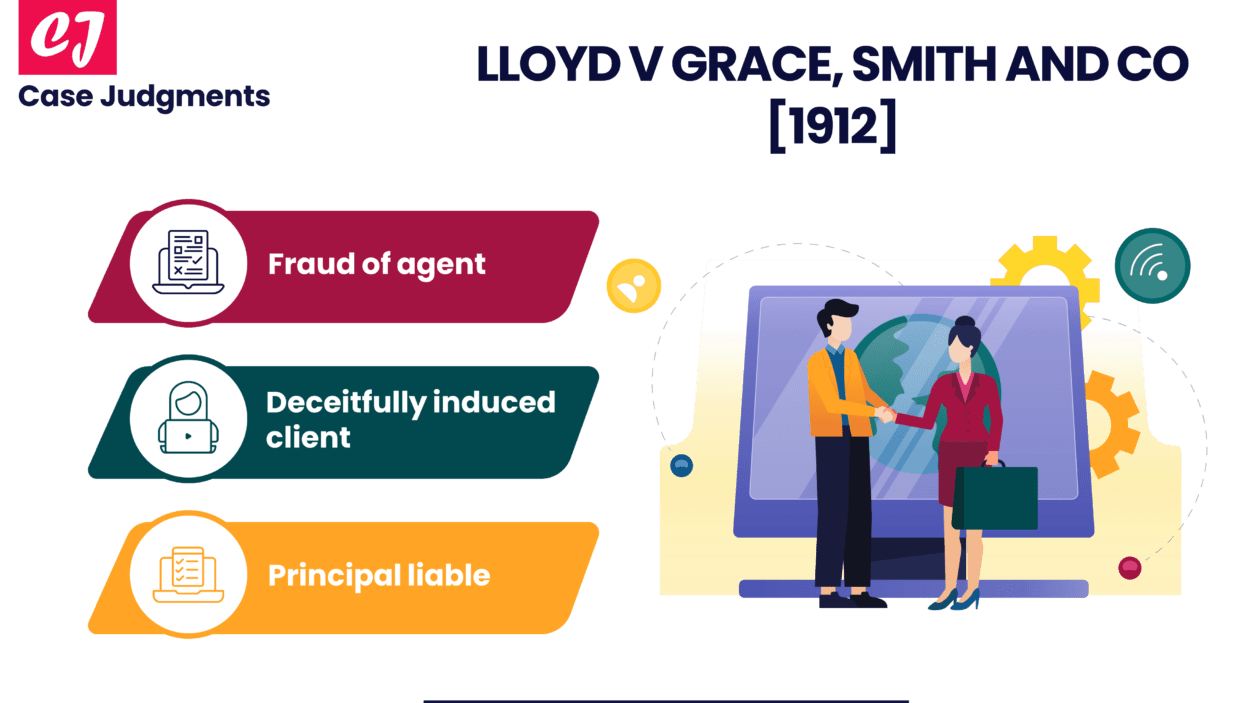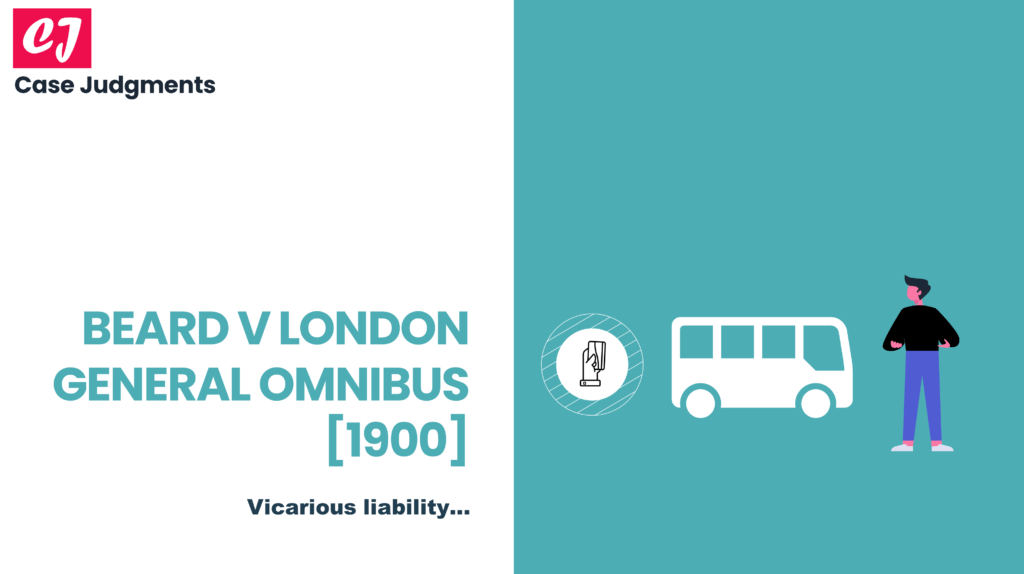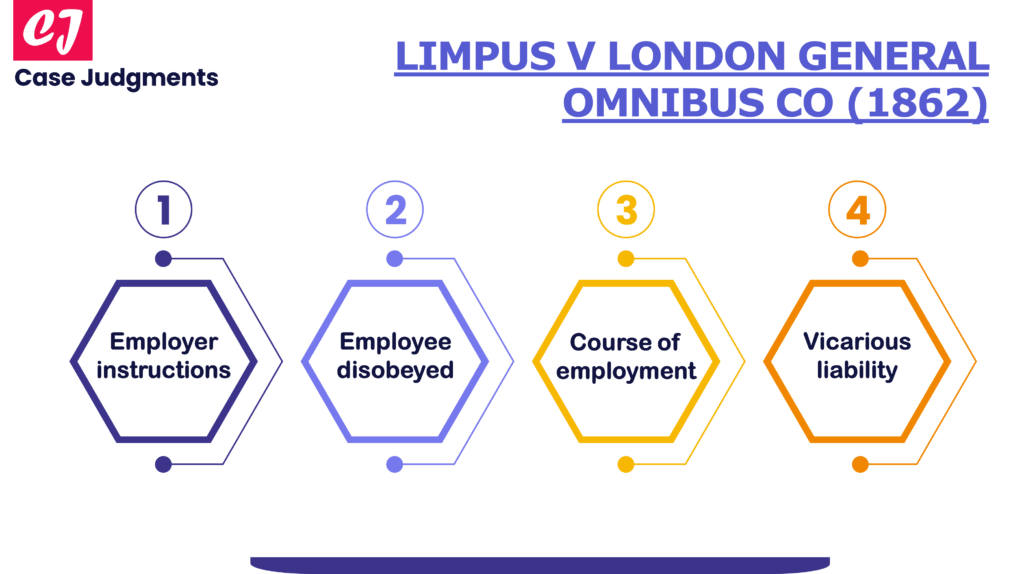
Lloyd v Grace, Smith & Co [1912]: A Summary
Case name & citation: Lloyd v Grace, Smith & Co [1912] AC 716
Court and jurisdiction: The House of Lords, England & Wales
Year of the case: 1912
The bench of judges: Lord Macnaghten, Earl Loreburn LC
Area of law: Vicarious liability under tort law
What does the case deal with?
Lloyd v Grace, Smith & Co [1912] is a tort law case on vicarious liability. It dealt with the issue of an employee committing fraud within the course of his employment and while conducting business for which he holds an apparent authority.
Facts of the case (Lloyd v Grace, Smith & Co)
An employee who worked for a firm of solicitors in the capacity of a conveyancing manager (managing clerk) was given the authority to arrange and negotiate the sales of real estate. Mrs Lloyd, the plaintiff, was a client of the firm and she was dealing with the managing clerk regarding the sale of two of her properties. The employee fraudulently induced and convinced the plaintiff to transfer ownership of her property to himself. He then used it for personal gain.
Issue
Could the defendant firm be held liable for the fraud committed by its agent?
Judgment of the Court in Lloyd v Grace, Smith & Co
In light of these facts, their Lordships concluded unanimously that the defendants should be held vicariously liable for the fraud.
Lord Macnaghten was convinced that a principal was liable for the fraud of his agent if the fraud was committed in the course of the agent’s employment and did not go beyond the scope of his agency. This was the case regardless of whether the fraud was committed for the benefit of the principal or not. The client had been invited by the firm to deal with their managing clerk. The fact that the agent acted dishonestly for his own benefit was irrelevant.
And it can be said that the underlying basis for the decision is well expressed in the notion that the fraud of the agent was closely related to his position as conveyancing manager, and that the principal created the risk of the fraud being committed by putting him in that position.
In other words, the House of Lords arrived at this conclusion after finding that the firm had ostensibly delegated authority to the managing clerk to carry out certain types of business by allowing him to deal with clients. He looked after conveyancing which is a part of the ordinary business of solicitors. As a result, the firm was responsible for the fraud.
The essence of the case
This decision was viewed as a ‘breakthrough’ because it demonstrated that vicarious liability need not necessarily be avoided when the employee acts for his own profit or benefit.
List of references:
- https://www.jicl.org.uk/storage/journals/November2020/id9IIk7xNbiM9oK80SY8.pdf
- https://shura.shu.ac.uk/21451/1/White_2017_LLB_CriticalAnalysisOf.pdf
- https://www.isurv.com/directory_record/5134/lloyd_v_grace_smith_and_co#:~:text=The%20managing%20clerk%20of%20a,was%20liable%20for%20the%20fraud.
- https://swarb.co.uk/lloyd-v-grace-smith-and-co-hl-1912/
You might also like:
More from tort law:

